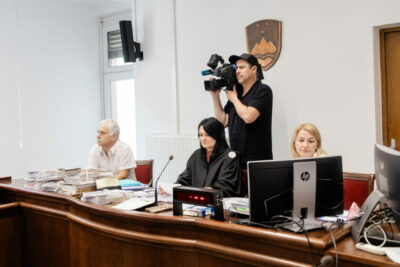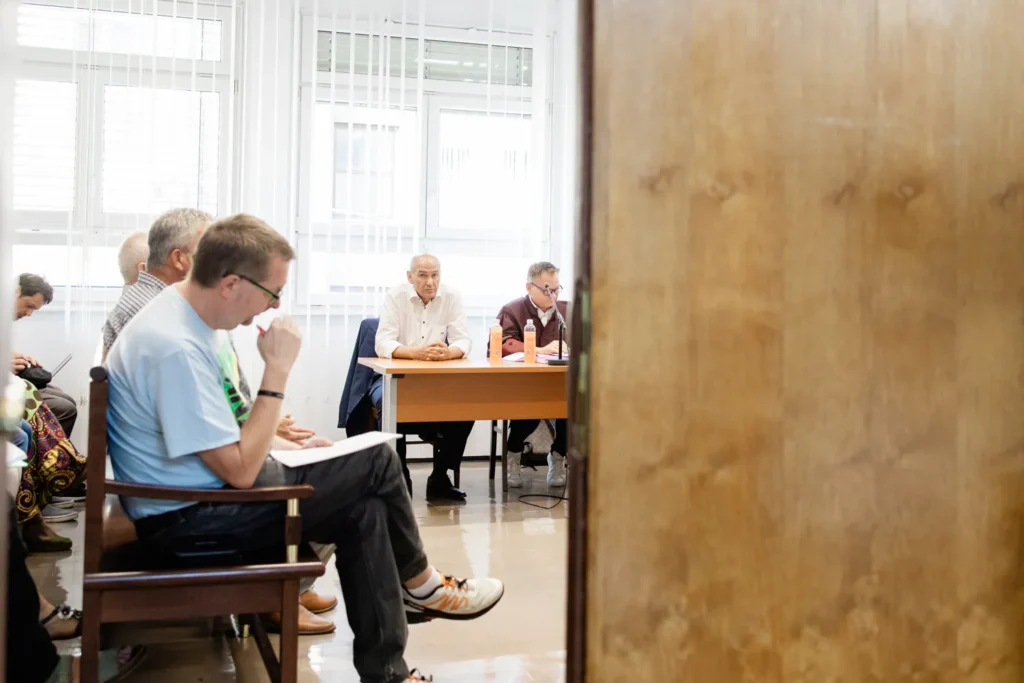After the January hearing in the Trenta case, is it even worth continuing with the proceedings that seem quite empty in terms of content, where the only thing that is being determined now is whether the Eurogradnje company really carried out a “sham” deal between Janez Janša and the Imos company? At Monday’s hearing, we also saw the judge – President of the Chamber, Cvetka Posilovič, raise her voice a few times.
Which is perhaps not unusual, given what has been happening recently with the now-former judge Zvjezdan Radonjić. He is probably the first judge in Slovenia to be accused of – an unfair trial. Well, judges who played a dirty role in the Patria case, for example, have never been tried for something like that. But Radonjić’s case shows what can happen when a judge does not bow to the interests of the deep state and judges according to his conscience.
Civil engineers questioned on finance and Fiesa
The fact that something is really wrong in the Trenta case process is also proved by the questioning of former Imos and Eurogradnja employees, all of them civil engineers, who denied having anything to do with the financial dealings of the two companies, as these were mainly carried out by professional services. However, the questions from the President of the Chamber, Cvetka Posilovič, mainly revolved around the Imos deal in Fiesa, where the work was carried out by the company Eurogradnje. She asked what had happened to the advance of 200,000 euros that Imos had given to the contractor. Well, according to the prosecution, it was a fictitious advance, which Imos used to enable Eurogradnje to buy the then-Janša estate in Trenta. But the inquiries did not bear fruit, because none of the three people being questioned – all three are civil engineers – gave a single clue to confirm the suspicions in the indictment that Imos had somehow given Janša a gift – a write-off of the second instalment for a larger apartment in Ljubljana, on the grounds that the Trenta estate was not worth nearly enough for Janša to make an equivalent swap with it. But the January testimony of Izidor Salobir showed otherwise.
Nahtigal and Kožar demolished the unprofessional and biased valuation of Sicgras
Later, Franc Nahtigal and Anton Kožar also appeared before the court again, but this testimony did not bring anything new. Nahtigal was the first to appraise the property and valued it at a price of more than one hundred thousand euros. This time, however, he took issue with the very low valuation by the company Sicgras, which sent a team of four appraisers and valued the estate at a ridiculously low price of only 15 thousand euros, or one euro per square metre. This was based on the assumption that it was not possible to build there. Mr Nahtigal said that the difference between his valuation and that of the Commission was that he had assumed that replacement construction was possible, which was confirmed by the expert opinion of the town planner Lidija Dragšič, while the two Sicgras appraisers had argued that what was left of the buildings in Trenta was nothing but ruins, which could no longer be rebuilt under the regulations in force at the time. Mr Nahtigal, while stating that he did not know why his fellow appraisers had taken such a rigid position, noted that, while it was difficult to obtain building consents on sites that were somewhat special, it was not impossible. Additionally, the attractiveness of the location also contributes to a higher price. However, Nahtigal also pointed out a fact that Salobir had already pointed out in January. That the appraisers had made a mistake in their valuation of the agricultural and forest land next to the buildings, because the price is higher there.

Kožar, who valued the property at 120 thousand euros, was even more critical of Sicgras’s valuation. Like Izidor Salobir, he had based his valuation on comparable sales, which is a very important factor in valuation. In his opinion, the Sicgras valuation was produced in breach of the law and, if it had been produced for the market, could have been subject to a claim for damages, as the input data was incorrect and falsified by the members of the Commission.
The next hearing is scheduled for the 17th of February.
G. B.


